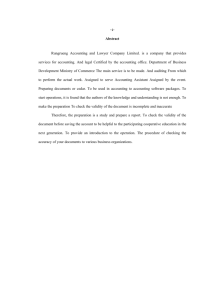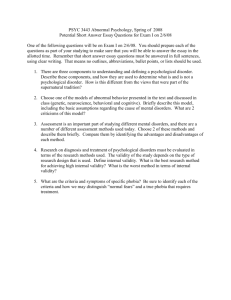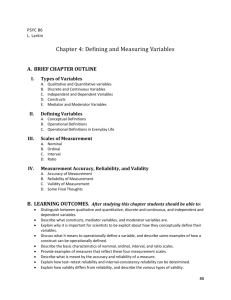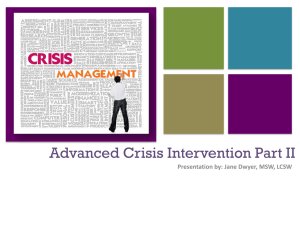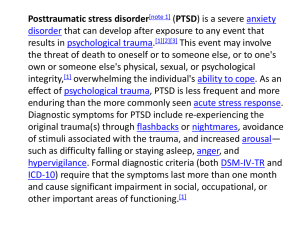FITT Assessment Tables - National Child Traumatic Stress Network
advertisement
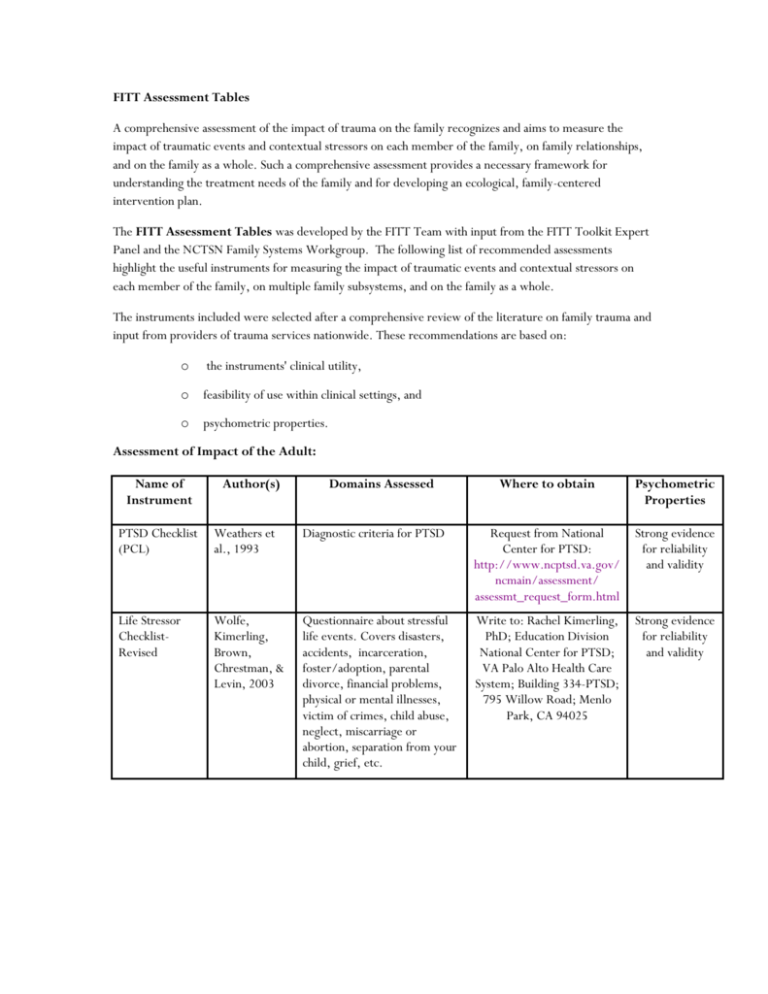
FITT Assessment Tables A comprehensive assessment of the impact of trauma on the family recognizes and aims to measure the impact of traumatic events and contextual stressors on each member of the family, on family relationships, and on the family as a whole. Such a comprehensive assessment provides a necessary framework for understanding the treatment needs of the family and for developing an ecological, family-centered intervention plan. The FITT Assessment Tables was developed by the FITT Team with input from the FITT Toolkit Expert Panel and the NCTSN Family Systems Workgroup. The following list of recommended assessments highlight the useful instruments for measuring the impact of traumatic events and contextual stressors on each member of the family, on multiple family subsystems, and on the family as a whole. The instruments included were selected after a comprehensive review of the literature on family trauma and input from providers of trauma services nationwide. These recommendations are based on: o the instruments' clinical utility, o feasibility of use within clinical settings, and o psychometric properties. Assessment of Impact of the Adult: Name of Instrument Author(s) Domains Assessed Where to obtain Psychometric Properties PTSD Checklist (PCL) Weathers et al., 1993 Diagnostic criteria for PTSD Request from National Center for PTSD: http://www.ncptsd.va.gov/ ncmain/assessment/ assessmt_request_form.html Strong evidence for reliability and validity Life Stressor ChecklistRevised Wolfe, Kimerling, Brown, Chrestman, & Levin, 2003 Questionnaire about stressful life events. Covers disasters, accidents, incarceration, foster/adoption, parental divorce, financial problems, physical or mental illnesses, victim of crimes, child abuse, neglect, miscarriage or abortion, separation from your child, grief, etc. Write to: Rachel Kimerling, PhD; Education Division National Center for PTSD; VA Palo Alto Health Care System; Building 334-PTSD; 795 Willow Road; Menlo Park, CA 94025 Strong evidence for reliability and validity Brief Symptom Inventory (BSI) Derogatis, 1993 Inventory of psychological symptoms. The BSI yields three global indices of distress, Global Severity Index (GSI) and nine subscales including Anxiety, Depression, Hostility, Obsessive-Compulsive, Somatization, Interpersonal Sensitivity, Phobic Anxiety, Paranoid Ideation, Psychoticism. Pearson Assessment Strong evidence for reliability and validity Assessment of Impact on the Child: Note: Recommend the use of a full trauma history screen covering a broad range of event types, such as the TESI or the first section of the UCLA PTSD Index. The recommended instruments are consistent with the NCTSN Core Data Set. UCLA PTSD Index for DSMIV Pynoos et al., 1998 Instrument keyed to DSM-IV PTSD symptoms for youth who report traumatic stress experiences. Trauma Symptom Checklist for Children (TSCC) Briere, 1996 A measure of PTSD and related symptoms, including those related to complex trauma disorders [41]. TSCC comprises 2 validity scales and 6 clinical subscales (Anxiety, Depression, Anger, Posttraumatic Stress, Sexual Concerns, Dissociation). Trauma Symptom Checklist for Young Children (TSCYC) Briere, 2000 The instrument contains eight clinical scales: Posttraumatic Stress-Intrusion (PTSI), Posttraumatic Stress-Avoidance (PTS-AV), Posttraumatic Stress-Arousal (PTS-AR), Sexual Concerns (SC), Dissociation (DIS), Anxiety (ANX), Depression (DEP), and Anger/Aggression (ANG). Request from: UCLA PTSD Index for DSM-IV: UCLA Trauma Psychiatry Service; 300 Medical Plaza; Los Angeles, CA 900956968. Phone: (310) 2068973 Email: HFinley@mednet.ucla.edu Psychological Assessment Resources Strong evidence for reliability and validity Psychological Assessment Resources Strong evidence for reliability and validity Strong evidence for reliability and validity Child Behavior Checklist (CBCL) Achenbach & Edelbrock, 1991 The instrument measures 8-9 subscales that can be collapsed into Internalizing, Externalizing, and a Total Problem Score. ASEBA Well validated Assessment of Impact on Adult Intimate Partners: Revised Conflict Tactics Scales (CTS2) Strauss, Hamby, Boney-McCoy, & Sugarman, 1996 Scales measuring the physical and psychological attacks on a partner in a marital, cohabiting, or dating relationship. Also looks at use of reasoning or negotiation to deal with conflicts. Scales include: physical assault, psychological aggression, negotiation, and injury & sexual coercion. Western Psychological Services Well validated Assessment of Impact on Parenting Practices: Parenting Stress Index (PSI) Abidin, 1990 Parental distress (contributing parental factors), difficult child (contributing child factors), parent-child dysfunction interaction Psychological Assessment Resources Strong evidence for reliability and validity Alabama Parenting Questionnaire Frick, 1991 Assesses: Positive involvement w/kids, Monitoring/Supervision, Use of positive discipline techniques, Consistency of discipline, Use of Corporal Punishment, Other Discipline Practices Link: http://fs.uno.edu/pfrick/ APQ.html Strong evidence for reliability and validity Assessment of Impact on Parent-Child Relationship: Parent-Child Conflict Tactic Scales (CTSPCCA) Straus, Hamby, Finkelhor, Moore, Runyan, 1995 Parent-Child Conflict Tactic Scales (CTS PC) Straus, Hamby, Finkelhor, Moore, Runyan, 1998 Measures the frequency of parents’ behavior related to discipline, aggression, assault, neglect, and sexual abuse and the extent to which parents carried out specific acts of physical or psychological aggression, regardless of whether or not the child is injured. Areas assessed: Nonviolent discipline, physical assault, neglect, psychological aggression, weekly discipline, & sexual abuse. Focuses on parent's experiences with their child, but also asks about parent's own experiences as a child. Copyrighted, permission required for use. Information link: http://pubpages.unh.edu/ ~mas2/CTS24D.pdf Some evidence for reliability and validity Western Psychological Services Strong evidence for reliability and validity Assessment of Impact on Sibling Relationship: Note: Sibling relationships can be important to the response and adaptation to trauma, however, no instruments were endorsed in this section. Assessment of Intergenerational Impact: Note: Intergeneration issues can be important to the response and adaptation to trauma, however, no instruments were endorsed in this section. Assessment of Impact on the Family Note: We offer two options for assessment of the family based on the provider's interest and consistency with intervention strategies used. We are not enthusiastic about either instrument and feel that development of a family trauma assessment instrument would be an important contribution to the field.
